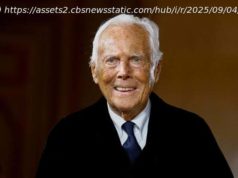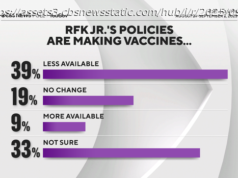Several industry executives want enhanced security after the slaying of UnitedHealthcare CEO Brian Thompson, Newsweek has learned.
High-profile executives and firms across several industries are frantically reassessing corporate security plans following the execution-style killing of UnitedHealthcare CEO Brian Thompson, sources told Newsweek.
The apparent premeditated ambush early Wednesday in midtown Manhattan as Thompson, 50, headed to the company’s annual investor conference prompted an immediate deluge of inquiries for private and cybersecurity firms—including some clients mulling whether to restart full-time details or spend hundreds of thousands of dollars annually on personal protection.
“As you can imagine, people are scrambling, companies are scrambling”, Charlie Carroll, CEO of ASET Corporation, which provides security for individuals, corporations and government agencies, told Newsweek.
Carroll said Thompson’s slaying even led one prominent former client to consider restarting the full-time security team they employed for nearly a decade but stopped three years ago.
“I just said to them, ‘You can play the game and try to take care of yourself, or save a few hundred thousand dollars a year’, ” Carroll said. “But my line of work and my company protects people against the 1 percent of what could go wrong, which will literally not only affect their remaining 99 percent, but a whole hell of a lot of other people’s livelihood.”
Carroll said he is scheduled to meet the food manufacturing executive in Boston on Monday, while a tool and die manufacturer inquired about a full-time security detail for himself and his family, including a presence surrounding investor meetings. ASET also received more than a dozen “nonserious inquiries” since Thompson’s shocking fatal shooting, he said.
“These are people that are trying to ease their stress and likely stick their toe in the water as to how much it would cost them if they went this route”, Carroll said.
Another company that manufactures medical equipment and a “very well-known name” in media also reached out for possible security services, which can cost hundreds of thousand dollars annually or several thousand per day, Carroll said.
“This is a numbers game for publicly traded companies”, he said, referencing the impact of Thompson’s killing on shares of UnitedHealth Group. “You might spend a million to two million dollars per year providing full-time security for your CEO or an important executive, but what you’re safeguarding against is something like this.”
The flurry of inquiries should continue for at least several days, Carroll said.Thompson’s murder could be ‘game changer’
“If the [shooter’s] motive was driven by the business that he’s in and decisions that were made by the company, whatever they were, then this is a game changer”, Glen Kucera, president of Allies Universal’s Enhanced Protection Services, told Newsweek on Thursday. “I can tell you from experience in the last day and a half [that] it’s raising awareness not only in the health care business, but all the executives in the large corporations throughout.”
Allied Universal provides security services for approximately 80 percent of all Fortune 500 companies. Risk advisory consulting and threat assessments are common protocols, such as providing security to a certain company or individual based on threat levels pertaining to travel, crime rates and other factors.
They received “hundreds” of calls from executives in a 24-hour period following Wednesday’s shooting, according to Kucera, who like Thompson grew up in the Midwest and built his own personal brand over more than three decades.
Along with billing itself as the world’s largest provider of canine detections, Allied provides armed operatives that Kucera said have been in more demand the last 18 months and really since societal tensions heightened during the COVID-19 pandemic.
Home
United States
USA — mix Companies, Executives Evaluate Security in Wake of Brian Thompson Killing






